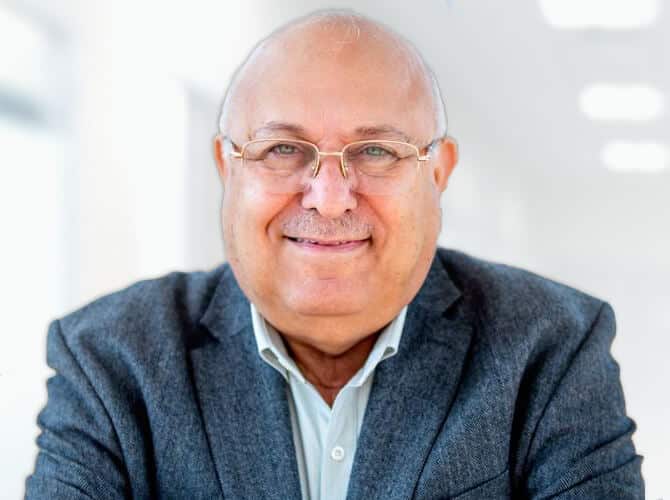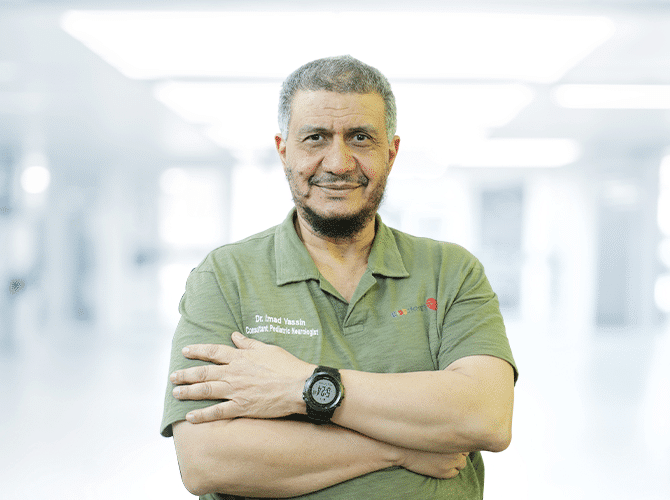Febrile Seizures
Febrile Seizures
Understanding Fever-Related Seizures in Young Children

At KidsHeart Medical Center, we know how terrifying it can be to see your child have a seizure — especially during a simple fever. For many parents, it’s sudden, alarming, and deeply confusing.
Febrile seizures are the most common seizure type in early childhood, often harmless but still deserving of expert attention.
Our Pediatric Neurology team helps families understand what’s happening, what it means, and what to do next.
We provide thoughtful, evidence-based care across Abu Dhabi, Dubai, and Al Ain — so parents feel supported, not panicked.

What Are Febrile Seizures?
Febrile seizures are convulsions triggered by fever in infants and young children, usually between 6 months and 5 years of age.
They may include:
- Sudden body stiffening or jerking
- Rolling of the eyes or brief unresponsiveness
- Seizures lasting a few seconds to a few minutes
- Often occurring on the first day of illness, when the fever rises rapidly
Febrile seizures are not the same as epilepsy. They are typically brief, self-limited, and do not cause long-term harm — but proper evaluation is still important.
When Should You See a Specialist?
You should consult a Pediatric Neurologist if:
- Your child has had a seizure with fever for the first time
- The seizure lasted more than five minutes
- It happened more than once in 24 hours
- Your child was unusually slow to recover
- There is a family history of epilepsy or complex febrile seizures
- You feel unsure or unprepared about what to do during future fevers
Even when febrile seizures are benign, expert guidance helps prevent unnecessary fear — and ensures your child’s health is protected.
How We Evaluate and Support Families
Here’s how we approach febrile seizures at KidsHeart:
- Clinical History and Fever Review: We discuss the illness, seizure details, and your child’s overall health.
- Neurological Examination: This helps confirm development and rule out concerns beyond the fever.
- Targeted Testing (if needed): EEG or imaging may be done in select cases (especially if seizures are prolonged or unusual).
- Fever Planning: We provide guidance on how to manage future fevers — and what signs to watch for.
- Follow-Up and Reassurance: Most children need only monitoring, not medication. We stay involved as long as needed.
Every case is met with calm, clarity, and child-centered care.
Why Families Trust KidsHeart
- Deep experience in seizure evaluation and pediatric neurology
- Honest, balanced communication — without over-treatment
- Guidance that helps parents feel prepared and in control
- Safe, comforting clinical spaces for young children
- Care available in Abu Dhabi, Dubai, and Al Ain
We focus on what matters most: your child’s safety, and your peace of mind.


Dr. Imad Yassin
Consultant Pediatrician/ Pediatric Neurologist – FRCPCH(UK) | Facharzt, FAMAP, Pediatric Neurology Cert (Austria)
Worried About a Recent Fever-Related Seizure? We’re Here to Guide You.
If your child had a febrile seizure — or you’re not sure what it was — we can help you understand what’s next.
Frequently Asked Questions (FAQs)
Most are not. They don’t cause brain damage and rarely lead to epilepsy.
Yes. Most children stop having febrile seizures by age 5 or 6.
Not always. These are only recommended in specific situations.
Typically not. Managing the fever and staying calm is often enough.
Stay with your child, keep them safe, and track the time. We’ll teach you exactly what to do.

